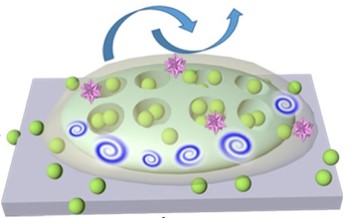Research Team: Oregon State University & Washington State University Vancouver
 The goal of this research project is to explore sensing of biological substances using naturally occurring diatoms, which are a group of single-celled algae found in nature that have been shown to possess unique properties suitable for biosensing applications. This research could lead to new methods to detect many types of biomolecules, which would in turn positively impact pollution monitoring, hazardous material detection, and early disease diagnosis. The integration of this research with education and outreach efforts benefits both graduate and undergraduate students at Oregon State University and Washington State University-Vancouver. Programmatic topics on nanophotonic technology and microfluidics are being added to curricula of these institutions, and efforts are underway to try to broaden the participation of under-represented minorities, women and K-12 students at these institutions through the summer research programs.
The goal of this research project is to explore sensing of biological substances using naturally occurring diatoms, which are a group of single-celled algae found in nature that have been shown to possess unique properties suitable for biosensing applications. This research could lead to new methods to detect many types of biomolecules, which would in turn positively impact pollution monitoring, hazardous material detection, and early disease diagnosis. The integration of this research with education and outreach efforts benefits both graduate and undergraduate students at Oregon State University and Washington State University-Vancouver. Programmatic topics on nanophotonic technology and microfluidics are being added to curricula of these institutions, and efforts are underway to try to broaden the participation of under-represented minorities, women and K-12 students at these institutions through the summer research programs.